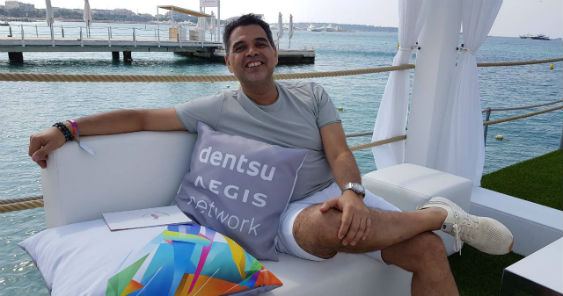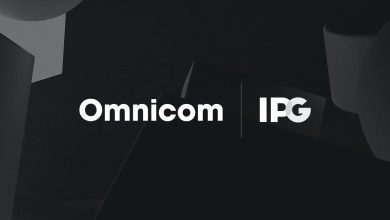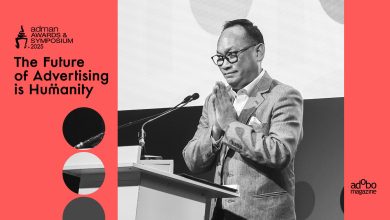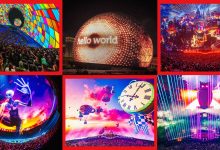adobo magazine’s editor-in-chief, Angel Guerrero, sits down with Dick Van Motman, Global President at Dentsu Brand Agencies at the Dentsu Aegis beach hut in Cannes, France at the Cannes Lions International Festival of Creativity 2018.
Dick Van Motman, Global President at Dentsu Brand Agencies
Years of building relationships in the advertising industry has led Dick to his current role as Dentus Brand Agencies Global President. He joined Dentsu in October 2012 as the first non-Japanese head in the capacity of Chairman & CEO for Dentsu Network/Asia which following the acquisition of Aegis Media Plc, got merged into a newly formed network: Dentsu Aegis Network. A full subsidiary of Dentsu Inc and an operation with over 300 offices worldwide and 22000 staff. As the head of Dentsu Aegis Network Southeast Asia, Dick oversaw 2500+ people and 35+ units.
What are your ambitions for your current global role coming out of Southeast Asia?
My ambitions are currently in keeping with how I started five and half years ago when I joined Dentsu. To help build the first global communications agency born out of Asia, with uniquely Asian roots, which is a license to do things differently. That are in line with our 118 years of history when a guy named Misunaga-san, who is a journalist, founded the company, he embraced the telegraph, which would you believe it was at the point in time, the biggest invention. And he used it as a way to reach more people faster, which sounds really contemporary to me. And even more interesting, he called the company ‘Dentsu’. And two out of the four characters that make out ‘Dentsu’ actually stands for new-age communication. And for me, as a brand guy, that is a gold nugget. It also explains how we have evolved over the last 118 years and it should give us a good pathway, a good northstar, on how we should evolve going forward.
Which markets are your looking into expanding to?
Today, where the world is bigger at the same time smaller, you can be everywhere more quickly and instantaneously. I don’t think it is necessary to have a flag everywhere but it is where the clients are and where the talent is and that will be very much the filters where we will be applying as we think about expanding. It is not so much expanding, as that is size-focused, I like to emphasize quality.
Where is Dentsu present outside of Japan?
Dentsu is pretty much present everywhere in Asia-Pacific, true to our Japanese Asian roots. It might not be known to a lot of people that we are actually pretty big in Asia-Pacific, and of course, we are in the U.S., in Canada, Brazil, Argentina – but there is still a lot to be done in the other offices.
Dentsu offices outside of Japan are doing well in Cannes this year.
It is very gratifying to see. In the past, it was very much Tokyo pulling the cart, now the investment and strategy of creating lighthouses across the region, across the globe, is bearing fruit. We are now seeing more offices chipping in, particularly this year, it has been very much about Australia and the Philippines which has great work like “Dead Whale” and “Revoice”. And not just in Cannes but also in ADFEST. This year where we became Network of the Year again, and also in Spikes. What I like is the consistency. It is great to win a Lion, I will take it any day, but it is really about consistency and sustainability of performance.
Cannes is seen as the barometer of the industry. Where do you see the industry going?
All kinds of platitudes come to mind, or clichés, like ‘transformation’ and ‘change’ is a constant, but it is. Undoubtedly, things are going faster due to technology even due to increased globalization. Even though there are one or two characters around the world in high positions who would like to stifle that. It is becoming much more a global place and, interestingly, I think it is the most exciting time to be in this industry.
End of the day, one of the by-products of a digital economy is that things get commoditized quicker which puts a bigger emphasis on creativity and ideas, which puts a bigger emphasis on brands. In today’s world where we can be everywhere instantaneously 24-7, there is a lot of fragmentation. The brand fundamentals become more important. But how you manage a brand in modern times, in this context, that is the trick. In the old days, agencies were very adept at making complex things simple, and I think that still holds true. About delivering every day, in this world of high context and high touch, brands need to touch, need to be in a relationship with the consumers every time. They need to capitalize on the connection, the shorter distance between connectivity and commerce. That means always on, always trying to capitalize. There is a very good role for agencies in that. If we can master how we can manage brands differently in today’s context.
When you see media, social media platforms trying to get into that space, or consultancies trying to get into our space, what are your thoughts?
Consultancies coming into our space? It is great. It is an extra validation for the industry that in the past was frowned upon. They quote about fifty percent and, John Hegarty in his lunch with the FT, referred to it. I think consultancies moving into our space means we must be doing something really valuable and I am always convinced that we do. Why else would big package goods and major brands engage our services? I don’t think you can lump the consultancies in one pot because there are some consultancies that have a very big accountancy practice that is in retreat because of machine learning and AI. They will lose a large part of their revenue so they are moving in a defensive position. There are some consultancies moving from a more offensive position that do not have these business dynamics, and of course, we take them very seriously. It keeps us on our toes, it should sharpen our game.
Creativity is an important currency in this age of technology, socialization of all that we do, consumers creating content – it is such a busy place to be creative in.
Well, that is also the opportunity. Brands become even more important. Brands organizing ideas, really knowing, having a compass, having a northstar, and then being able to create unique brand experiences around that. Brand experiences are not only confined to communications, I think that is the big opportunity which is right up the alley of Dentsu. We never just define ourselves with advertising, as evidenced by our name and our evolution, and we are definitely going forward. We see our mission is very much about moving business, about moving people. Now you can do that with a huge plethora of means. What is the right constellation? That right mix every time.
Do you find it hard to find talent nowadays?
Talent is a combination of skillset and mindset. We need to embrace different skillsets because you need to manage brands differently. Tech is important, data is important, media is hugely important but at the end of the day to create the magic, you need to have creativity. So it really about the amalgamation of all those four parts and that is why Dentsu Aegis Network is ideally suited. We have these capabilities and we bring them together in a unique operating model which is the one P&L. The trick is to keep having the right capability, that is one part, and then it is about the mindset. I think a lot of people confuse innovation with technology, I call that ‘mentech’, the ‘mentech dilemma’. It is not about technology, it is about mentality. Having the right talent who have the right mindset, who can reiterate themselves, reinvent themselves to 2.0, 3.0. It is not just about companies but about individuals who have this big appetite to be curious, to run into the direction of your fear. If you are looking for that talent, that is always a bit scarce.
On diversity and gender equality in your network.
We talked for the last five years off and on and when I started with Dentsu, one of the missions was to globalize. You globalize by being a resemblance of the globe. And that means diversity in all shapes and forms not just over gender. I support the whole diversity debate and I think it is too much played out over gender only. I think It should be about all its aspects – color, ethnicity, race, outlook in life, orientation. That really makes up the diversity group and will create the right friction and magic.








